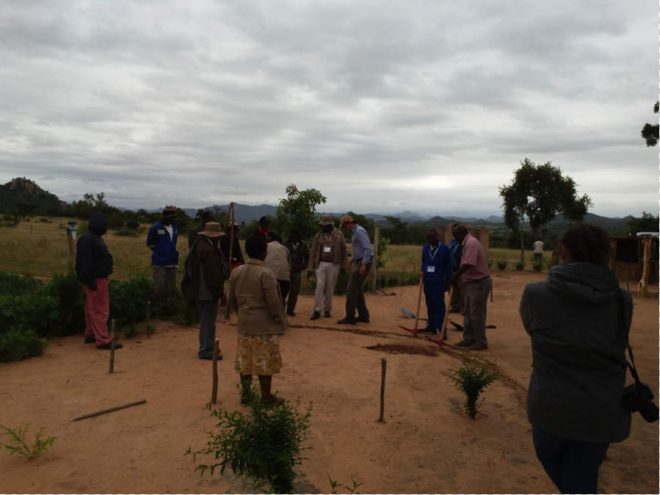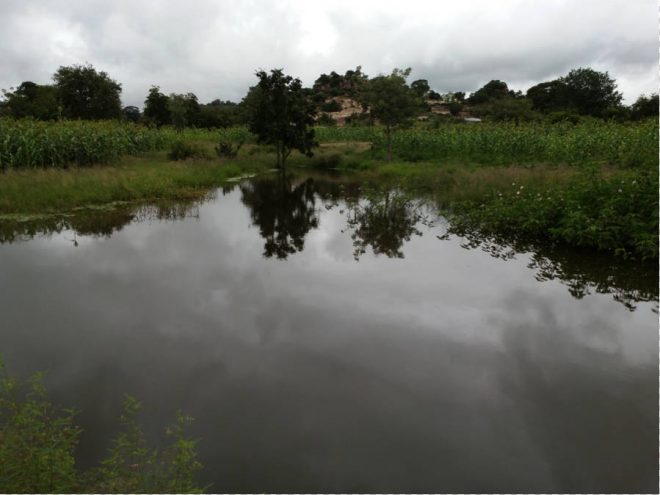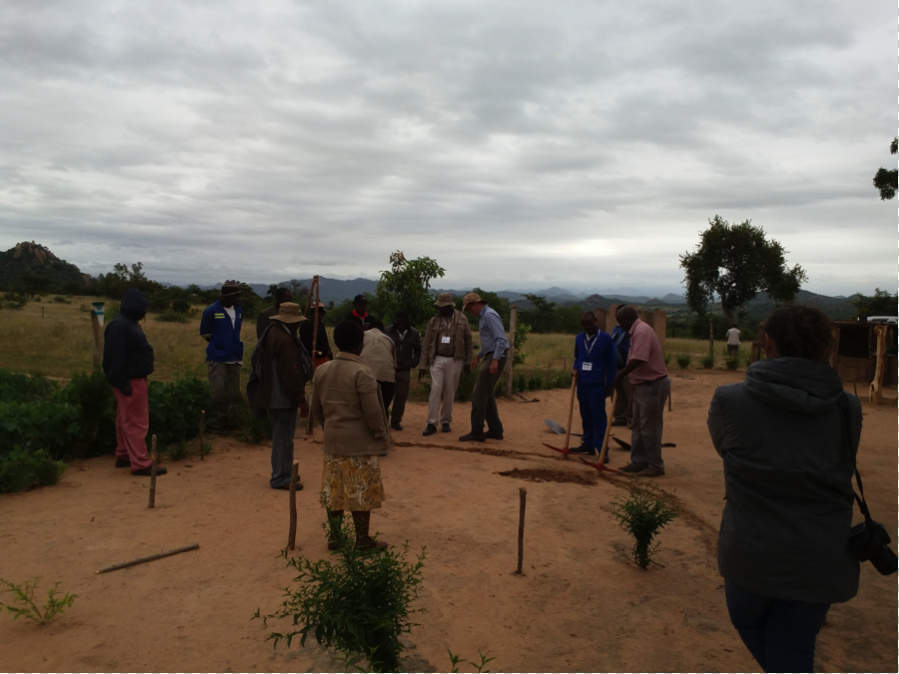Contributed by Executive Director, Molly Cheatum
Earlier this month, I attended a weeklong training in Mutare, Zimbabwe with the Technical and Operational Performance Support (TOPS) Program. This program is a USAID/Food for Peace-funded program, led by Save the Children, with consortium partners including: CORE Group (Knowledge Management), Food for the Hungry (Social and Behavioral Change), Mercy Corps (Agriculture and Natural Resource Management), and TANGO International (Monitoring and Evaluation).
Previously, two members of Kusamala’s management team attended two trainings in Malawi in November and January through this program and this gathering in Zimbabwe was an extension of those trainings with NGO community coordinators and leaders. Kusamala was asked to be a presenter at the training and talk about the work that we are doing in Malawi around climate resilient designs with smallholder farmers. Nicholas Syano from The Permaculture Research Institute (PRI) in Kenya was also asked to present on their work with the intention of connecting regional activities working towards similar goals.
The discussions generated from the presentations were lively, challenging, and much needed. We talked about the difficulties (but not impossibilities) in upscaling these approaches, how to monitor projects differently with holistic systems in mind, and ideas on how to connect and build communities not only on-the-ground, but nationally and regionally.
It was wonderful to be in a room with such dedicated, knowledgeable, and interesting people. The presenters Warren Brush, Brad Lancaster, and the staff from Mercy Corps – Thomas Cole, Andrea Mottram, Eric Carlberg, Ed Brooks, and Abby Love who facilitated and organized the training, were truly inspiring and collectively had over one hundred years of experience. Besides learning about resilient systems in a classroom, we also visited farmers working with World Vision to design a homestead and practice building dead level contours as well as boomerang swales around fruit trees.

Brad Lancaster and training participants making a boomerang swale for a lemon tree at a World Vision mother demonstration plot.
Through this training, Kusamala connected with Muonde Trust, an organization built around the incredible work of Mr. Zephaniah Phiri’s in Mazvihwa, Zimbabwe on resilient regenerative designs for water that continuously build off each other year after year. His work inspired Brad Lancaster in the 1990s, although Mr. Phiri had been doing his work for nearly 20 years before Brad met him. The systems he built on his farm decades ago today are even more effective with perennial water systems and yearlong growing seasons.
Muonde Trust is an incredible group of dedicated persons who are spreading Mr. Phiri’s work and doing an impressive job. The photo below shows a farm with less than 500mm of rain a year, successfully harvesting water now from perennial streams and ponds. They are also building a community of experts in stonewalling and since 2014 built 13 km of stonewalls within their area.

Muonde Trust – Pond catching rain water from the road.
These approaches need to be leveraged, supported, and built into projects from the beginning with the intention of building a regenerative system that increases water tables, soil fertility, healthy plants and animals. It’s possible and being done in isolated places around the world, if they were connected with policy and leaders supporting these initiatives, our landscapes and how we connect with them would be transformed.
Visit the Food and Security Network for climate resilient design materials and guides like the TOPS Permagarden Technical Manaul that can be used in your own projects.
Related Post by Warren Brush – Permaculture for Resiliency in International Development Through USAID


